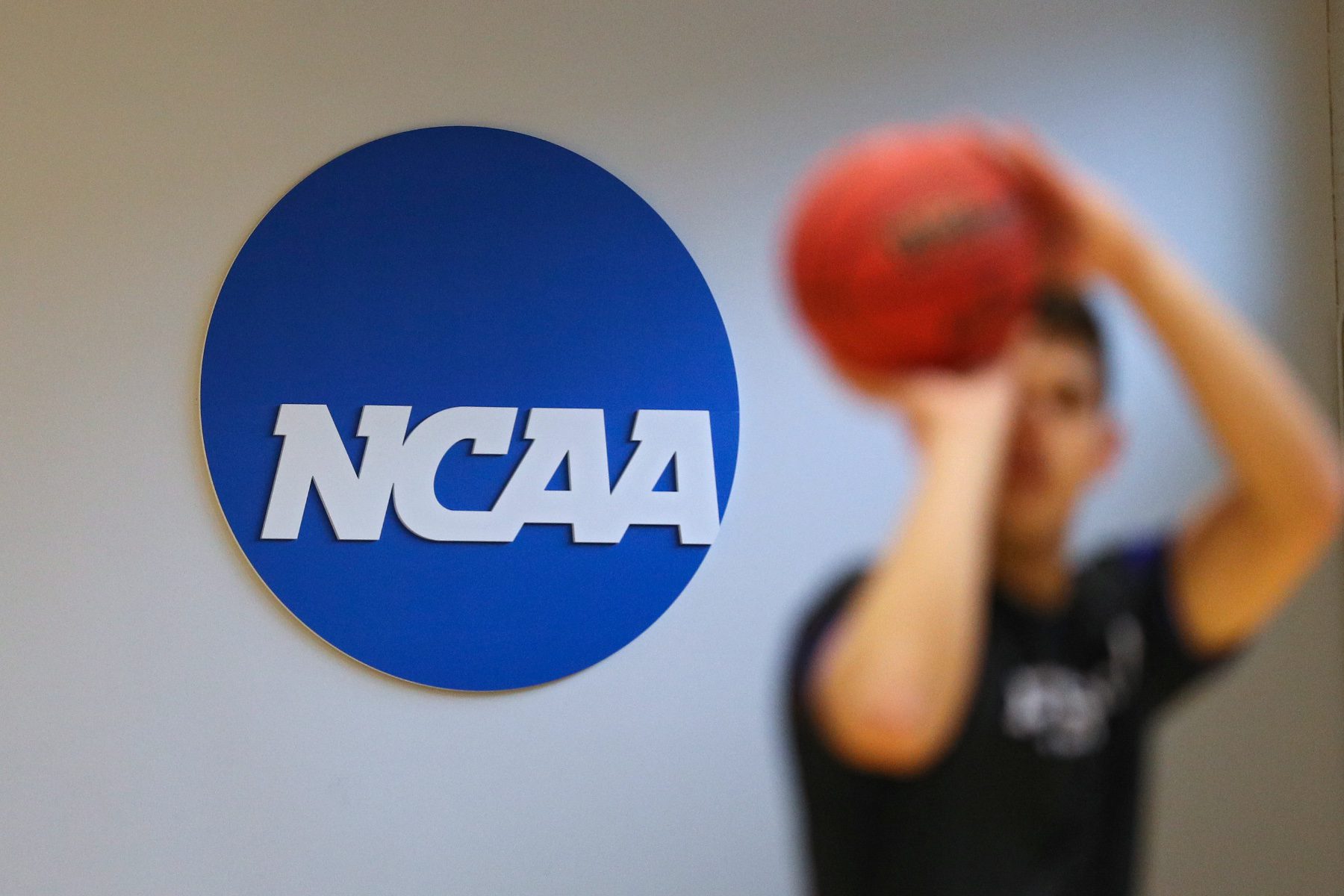The clause in question is just five lines long. But for transgender student athletes, it could be the difference between playing or giving up the sports they love, LGBTQ+ advocates say.
The National Collegiate Athletic Association (NCAA) membership convenes this week to consider proposed annual changes to its constitution. Among them: the removal of a nondiscrimination statement that would have barred colleges from rejecting athletes based on sexual orientation and gender identity, among other things.
This “principle of nondiscrimination” was included in the 2021 NCAA constitution: “It is the policy of the Association to refrain from discrimination with respect to its governance policies, educational programs, activities and employment policies, including on the basis of age, color, disability, gender, national origin, race, religion, creed or sexual orientation,” it read in part.
But changes proposed in November by the NCAA constitution committee would strip those protections. The removal set off red flags for LGBTQ+ advocates who have been battling anti-transgender bills in state legislatures across the nation.
Ten anti-trans sports bills have been signed into law in the past two years, and hundreds more have been introduced into state legislatures. Advocates for the bills claim they protect cisgender women in sports, while trans rights groups have countered that the bills needlessly exclude transgender girls from play.
At least 18 LGBTQ+ organizations, including the Human Rights Campaign, GLAAD, Athlete Ally and Lambda Legal sent the NCAA a letter Thursday asking the organization not to strip the protections.
“The political climate that we have seen develop in certain state legislatures gives us little hope that non-discrimination and fair treatment are principles that will be consistently upheld by state laws, or that state policies are even trending in the right direction,” the letter reads.
The NCAA has historically been a powerful voice in support of transgender issues, the letter argues. After North Carolina passed an anti-trans bathroom bill in 2017, the NCAA Board of Governors announced it would move its seven 2016-17 championship events from the state to prevent athletes from facing a discriminatory atmosphere.
Still, LGBTQ+ advocates have asked the NCAA to go further by boycotting states with new anti-trans sports bans on the books. The NCAA has that they are reevaluating their own participating policies. But advocates say that selecting states that encourage discrimination puts those athletes in danger.
On Wednesday, ahead of the letter being sent, the NCAA announced a new policy on eligibility requirements for trans athletes. Each sport’s governing body will now determine its own requirements. Previously, the policy was based on hormone therapy requirements and applied to the entire NCAA.






